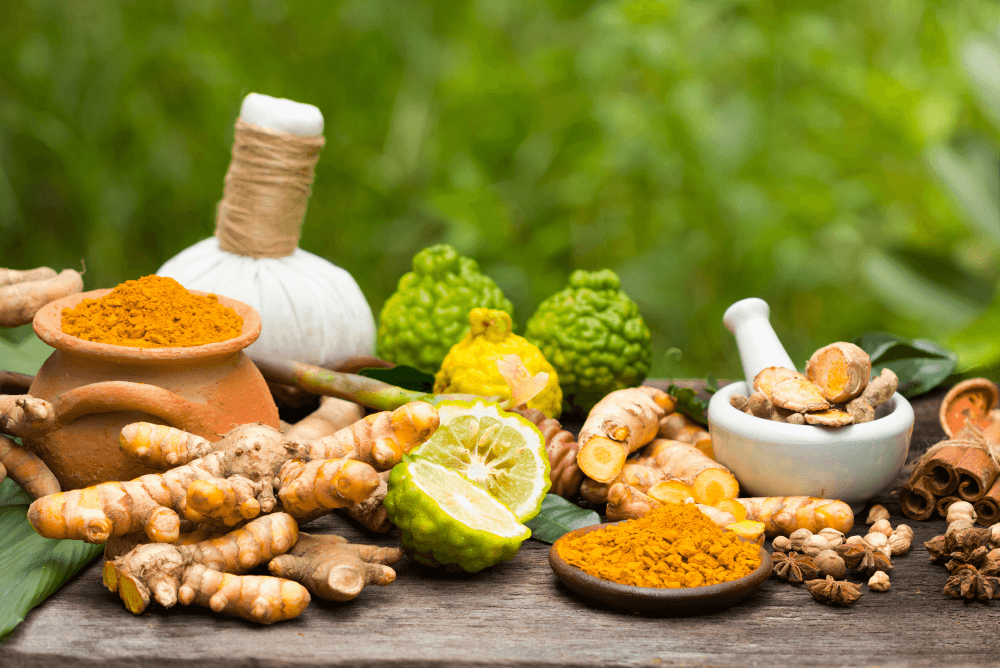Introduction
Hyperacidity, also known as acid dyspepsia or acid reflux, is a common gastrointestinal condition characterized by an excess production of Hydrochloric acid in the stomach. This acid can lead to discomfort, pain, and various digestive issues, significantly impacting an individual’s quality of life. With lifestyle changes, dietary habits, and increasing stress levels, hyperacidity has become more prevalent, making it crucial to understand its causes, symptoms, risk factors, and preventive measures.
Understanding Hyperacidity
Hyperacidity occurs when the stomach produces more acid than is necessary for the digestive process. The stomach naturally secretes hydrochloric acid to aid in the digestion of food. However, when this acid is produced in excess, it can lead to irritation of the stomach lining and the oesophagus, causing a range of symptoms commonly associated with acid reflux.
Causes of Hyperacidity
Several factors influence the development of hyperacidity, including dietary habits, lifestyle decisions, and underlying medical disorders.
1. Dietary Habits
- Spicy and Fatty Foods: Consuming foods that are high in spices and fats can stimulate the production of excess stomach acid. Spicy foods, in particular, can irritate the stomach lining, leading to hyperacidity.
- Caffeine and Alcohol: Both caffeine and alcohol have been shown to boost stomach acid production. They can also relax the lower esophageal sphincter (LES), which acts as a barrier between the stomach and the oesophagus, allowing acid to reflux back into the oesophagus.
- Carbonated Beverages: These beverages can raise stomach pressure, allowing acid to reflux into the oesophagus and cause hyperacidity symptoms.
-
Overeating: Eating large meals, especially those rich in fats, can cause the stomach to produce more acid to aid in digestion, increasing the likelihood of hyperacidity.
2. Lifestyle Factors
- Stress: Chronic stress might cause an increase in stomach acid production. It also affects the digestion process, potentially exacerbating symptoms of hyperacidity.
- Lack of Physical Activity: A sedentary lifestyle can slow down digestion, leading to an accumulation of stomach acid.
- Smoking: Smoking is known to weaken the LES, making it easier for stomach acid to enter the oesophagus. It also increases stomach acid production.
- Irregular Eating Patterns: Skipping meals or eating at irregular times can lead to an imbalance in stomach acid production.
3. Medical Conditions
- Gastroesophageal Reflux Disease (GERD): GERD is a chronic illness in which stomach acid often refluxes into the oesophagus. This backflow irritates the lining of the oesophagus and can lead to hyperacidity.
- Hiatal Hernia: A hiatal hernia occurs when a part of the stomach pushes through the diaphragm into the chest cavity. This condition can disrupt the normal function of the LES, leading to acid reflux and hyperacidity.
- Helicobacter pylori Infection: This bacterial infection is known to cause inflammation of the stomach lining (gastritis) and can increase stomach acid production.
- Peptic Ulcers: Ulcers in the stomach or the first part of the small intestine can cause an increase in acid production as the body attempts to digest the affected tissues.
Risk Factors for Hyperacidity
Certain factors increase the risk of developing hyperacidity. Understanding them can help you take preventative steps.
1. Age
As people age, the likelihood of developing hyperacidity increases. This is due to the weakening of the LES and a decrease in the production of digestive enzymes.
2. Obesity
Excess weight, especially around the abdomen, increases pressure on the stomach, which can force acid into the oesophagus.
3. Pregnancy
During pregnancy, hormonal changes and the growing fetus can put pressure on the stomach, leading to hyperacidity. This condition is commonly known as acid reflux or heartburn in pregnancy.
4. Diet
A diet high in fatty, spicy, or acidic foods can increase the risk of hyperacidity. Irregular eating patterns and large meals also contribute to the condition.
5. Smoking
Smoking weakens the LES, allowing stomach acid to seep back into the oesophagus. It also stimulates acid production.
6. Alcohol Consumption
Excessive alcohol intake increases stomach acid production and weakens the LES, contributing to hyperacidity.
7. Medications
Certain medications, such as nonsteroidal anti-inflammatory drugs (NSAIDs), aspirin, and certain antibiotics, can irritate the stomach lining and increase acid production.
8. Stress and Anxiety
High levels of stress and anxiety can lead to an increase in stomach acid production and exacerbate symptoms of hyperacidity.
Symptomatology of Hyperacidity
The symptoms of hyperacidity can vary from mild discomfort to severe pain and are often triggered by certain foods or stress. Common symptoms include:
1. Heartburn
Heartburn is a burning sensation that happens in the chest, typically after eating. It is produced by the reflux of stomach acid into the oesophagus. The pain often worsens when lying down or bending over.
2. Regurgitation
Regurgitation is the sensation of acid or food rising back up into the throat or mouth. This can leave a sour or bitter taste and may be accompanied by burping.
3. Nausea
Hyperacidity can cause a feeling of nausea, especially after eating a large or rich meal. In severe cases, it may cause vomiting.
4. Bloating and Gas
Excess stomach acid can lead to the production of gas, resulting in bloating, belching, and flatulence.
5. Abdominal Pain
Pain or discomfort in the upper abdomen is a common symptom of hyperacidity. The pain may be sharp, burning, or cramp-like and can be mistaken for other conditions like a heart attack.
6. Difficulty Swallowing (Dysphagia)
Chronic hyperacidity can lead to inflammation and scarring of the oesophagus, making it difficult to swallow. This condition is known as dysphagia.
7. Chronic Cough and Hoarseness
Stomach acid that irritates the throat can cause a persistent cough or a hoarse voice. This is typically harsher in the morning.
8.Sour Taste in the Mouth
A sour or bitter taste in the mouth is a common symptom, especially after regurgitation.
9. Misinterpretation of Cardiac Symptoms as Hyperacidity
One of the most critical aspects of hyperacidity is the potential for its symptoms, particularly chest pain, to be mistaken for those of cardiac arrest. Both conditions can present with a burning sensation or discomfort in the chest, leading individuals to believe they are experiencing simple heartburn rather than a life-threatening cardiac event.
- Chest Pain Overlap: Chest pain associated with hyperacidity is typically burning and localised behind the breastbone, often after eating or when lying down. However, similar chest pain can occur during a heart attack, where the pain is more severe, pressure-like, and may radiate to the arms, neck, or back.
- Delayed Response: Mistaking cardiac symptoms for hyperacidity can lead to delays in seeking emergency medical care. This delay might be fatal, as prompt treatment is required during a cardiac arrest.
- Fatal Consequences: While hyperacidity itself is not life-threatening, the misinterpretation of cardiac symptoms as acid reflux can result in a fatal outcome. Individuals with risk factors for heart disease should be particularly cautious and seek immediate medical attention if they experience chest pain, even if they suspect it might be related to hyperacidity.
In summary, while hyperacidity is a common and manageable condition, its symptoms can sometimes mimic those of more serious health issues, such as a heart attack. This overlap highlights the importance of being aware of the differences between the two conditions and seeking prompt medical attention when in doubt.
Preventive Measures for Hyperacidity
While hyperacidity can be uncomfortable, it is often preventable with some lifestyle and dietary adjustments. Here are some helpful techniques to avoid hyperacidity:
1. Dietary Modifications
- Eat Smaller, Frequent Meals: Instead of large meals, eat smaller portions throughout the day. This helps to prevent the stomach from becoming too full and reduces the production of stomach acid.
- Avoid Trigger Foods: Identify and avoid the foods that cause your symptoms. Common culprits include spicy foods, caffeine, chocolate, and fatty foods.
- Incorporate Alkaline Foods: Foods such as bananas, melons, oatmeal, and green vegetables can help neutralise stomach acid and reduce symptoms.
- Chew Your Food Thoroughly: Chewing food thoroughly aids digestion and reduces the burden on the stomach to produce acid.
-
Limit Alcohol and Caffeine: Reduce the intake of alcohol and caffeine as they can increase stomach acid production.
2. Lifestyle Changes
- Maintain a Healthy Weight: Losing excess weight can reduce pressure on the stomach and prevent acid reflux.
- Exercise Regularly: Regular physical activity helps in digestion and reduces the likelihood of acid reflux. However, avoid exercising immediately after meals.
- Quit Smoking: Smoking weakens the LES and increases acid production, so quitting can help prevent hyperacidity.
- Manage Stress: Practice stress-reducing techniques such as meditation, yoga, or deep breathing exercises to help control stomach acid production.
- Sleep with Your Head Elevated: Elevating the head while sleeping can prevent stomach acid from flowing back into the oesophagus. Use a wedge cushion or raise the head of your bed.
3. Seek Medical Advice
If symptoms persist despite lifestyle changes and over-the-counter treatments, consult a healthcare provider for further evaluation and management.
Conclusion
Hyperacidity is a common but manageable condition. By understanding its causes, symptoms, and risk factors, individuals can take proactive steps to prevent and manage hyperacidity. Simple lifestyle and dietary changes, coupled with appropriate medical interventions when necessary, can significantly reduce the discomfort associated with hyperacidity, improving overall quality of life. If you experience persistent or severe symptoms, it is essential to seek medical advice to rule out any underlying conditions and receive appropriate treatment.







